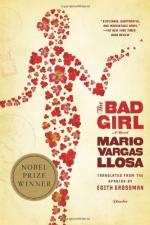|
This section contains 629 words (approx. 3 pages at 300 words per page) |

|
SOURCE: Heawood, Jonathan. “Past Master.” New Statesman 132, no. 4665 (24 November 2003): 55.
In the following review, Heawood criticizes Vargas Llosa's unsure and anxious characterizations in The Way to Paradise.
The older he gets, the more difficult Mario Vargas Llosa becomes. It's not that his work is more obscure or challenging, but he makes things increasingly hard on himself. He writes about historical figures but seems unsure of his ability to fictionalise them. At every step of The Way to Paradise, he reaches out anxiously towards his characters, Paul Gauguin and Gauguin's grandmother, the social reformer Flora Tristan, and addresses them directly. He veers erratically between the third and the second person: “He laughed, then grew distressed. Why were you remembering your mother now? He hadn't thought of her since 1888, when he painted her portrait.”
All that seems certain is that he and his grandmother spent their lives seeking the way to...
|
This section contains 629 words (approx. 3 pages at 300 words per page) |

|


